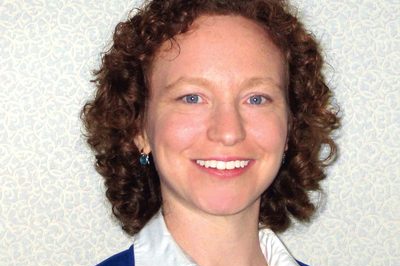I agree with Robin Wirthlin.
The Massachusetts Mormon mother and I might not seem to have a lot in common. She and her husband were featured in a 2008 video for California’s “Yes on 8” campaign in which she explains that she was shocked when her son told her his second-grade class had read the picture book “King & King,” about a prince who marries another prince.
She was so shocked, in fact, that she and her husband sued the school district, saying the school’s attempt to “indoctrinate” their children violated their constitutional rights as parents. They did not win their case, despite an appeal to the U.S. Supreme Court (which the court refused to hear).
Still, they didn’t hesitate to make a video for Yes on 8 (used later in Maine), in which they say their second-grader was too young “to learn about homosexuality.”
I’ve been thinking of the video because the defense in the Perry v. Schwarzenegger Proposition 8 trial played it for the court last week. They were attempting to get Yale professor George Chauncey to admit that parents should be able to exempt their children from learning in school about same-sex marriage. Chauncey, to his credit, stated that married same-sex couples are a fact of life in Massachusetts. If parents don’t want their kids to hear about that in public school, he said, they should put them in private school.
How, then, could I possibly agree with Robin Wirthlin?
Where we concur is in her assertion, “We just wanted [our children] to have a carefree and protected childhood.” That is a goal I, too, support for my son.
I strongly disagree with Wirthlin, however, about the type of things we think will do our children harm. Protecting them, as I see it, does not mean insulating them from the reality of other loving families in their communities. It does not mean harming other children in the process.
The harm to children is not from learning about gay people. It is from being told their families are second-class, undeserving of the same rights as others. It is learning that marriage is not a matter of lasting commitment, but can be obliterated by something as simple as crossing a state line. It is feeling outcast because one wants to ask a person of the same gender to the high-school dance or for being harassed on the playground for not having a father or beaten up in the boys’ locker room for wearing a too-feminine shirt.
During the Prop. 8 hearings, Chauncey drew parallels between the Wirthlins’ video and Anita Bryant’s “Save the Children” campaign in the 1970s, in which the singer tried to show that gay people are child molesters and that gay-inclusive antidiscrimination laws would incent children to be gay. The campaign against marriage equality is part of this longer history of bias, Chauncey said.
Much of the struggle for lesbian and gay rights, therefore, can be seen as a struggle to show that there is nothing about gays or lesbians that is of harm to children. The plaintiffs and the defense in the Prop. 8 case have each lined up a slew of child-psychology experts (or supposed experts) and research to back their sides’ view.
What the supporters of Prop. 8 ignore, though, is that children will learn about gay people regardless of the curriculum or the legal status of our relationships. Unless we have our children taken from us by force, gays and lesbians will continue to be parents. Our children will continue to be in schools, sitting next to theirs.
And that interaction can create unexpected bonds.
My son has two close friends who are Catholic. Their families are observant enough to send them to weekly religious-education classes. The Catholic Church, however, ranks right up there with the Mormon Church as one of the religious institutions most opposed to LGBT rights.
The friends’ parents are, however, unfazed about their children knowing that our son has two moms. They think nothing about sending their children to our house for playdates. We have formed a personal connection through our children that transcends what the Church as an institution may preach.
I know from speaking with other LGBT parents that I am not alone in this. While our rights are being debated on the public stage, it is the personal connections — more than the political contests — that give me hope.
It is painful to watch the defense in the Prop. 8 case wielding misinformation about lesbian and gay parents. Regardless of the outcome of this case, though, I have to believe that more parents are realizing it is important to nurture their children’s friendships, regardless of the sexual orientation or gender identity of the friends’ parents. It’s important to give children the understanding to interact with people from many different backgrounds.
Strong friendships and social flexibility. Those tools are protection against a variety of ills and, in the end, more effective than keeping children tightly shielded from the world around them. Those are also the tools that will allow our children to finish the job we have begun, of building a better future for us all — one playdate at a time.
Dana Rudolph is the founder and publisher of Mombian (www.mombian.com), a blog and resource directory for LGBT parents.

